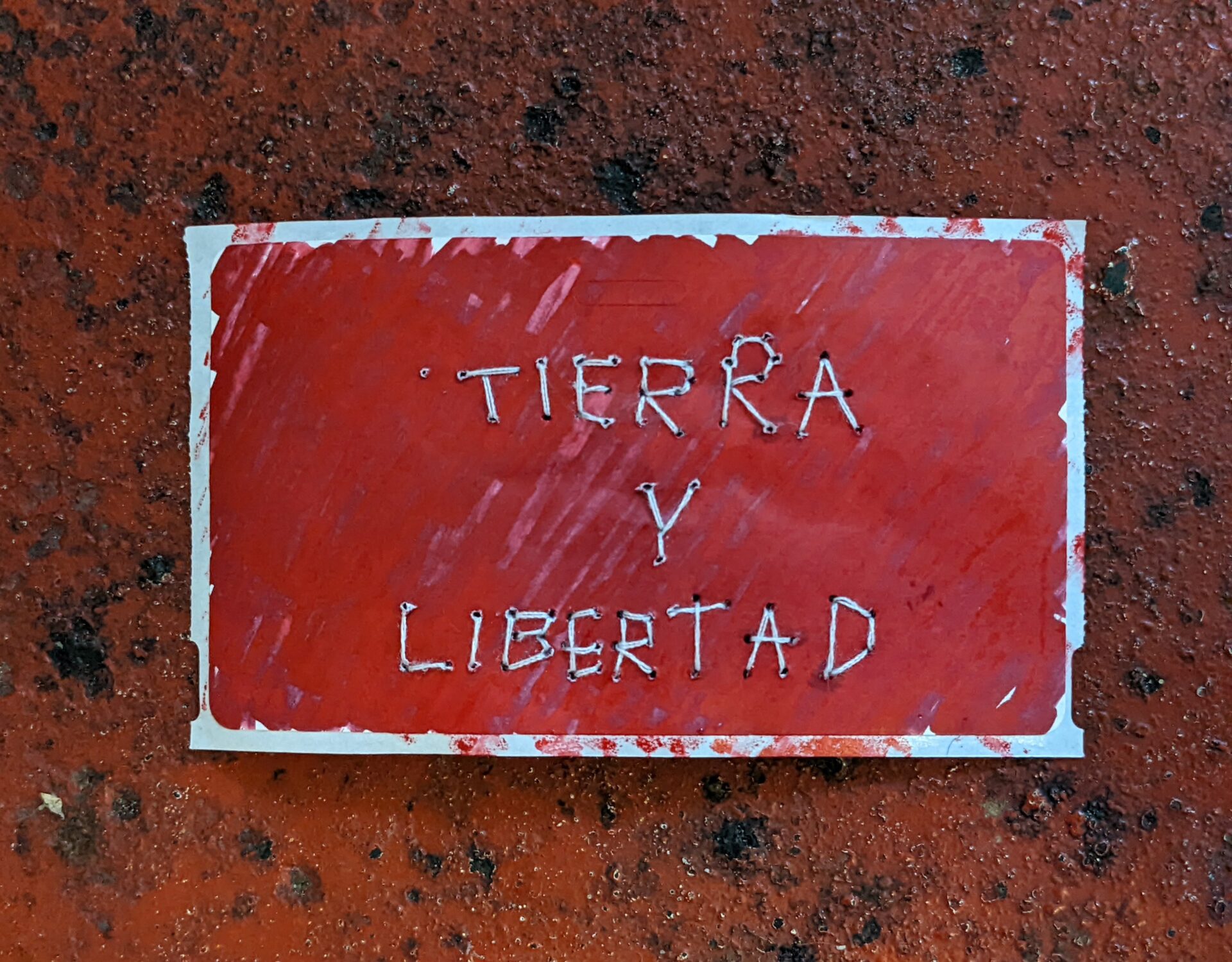Saturday, June 181:00pm CDTMarfa Visitor Center
Judd Foundation and Agave Festival Marfa present a conversation with Grant Leuning and Pepe Rojo of the Comité Magonista Tierra y Libertad.

Saturday, June 181:00pm CDTMarfa Visitor Center
Judd Foundation and Agave Festival Marfa present a conversation with Grant Leuning and Pepe Rojo of the Comité Magonista Tierra y Libertad.

Saturday, June 181:00pm CDTMarfa Visitor Center
Judd Foundation and Agave Festival Marfa present a conversation with Grant Leuning and Pepe Rojo of the Comité Magonista Tierra y Libertad. This discussion, in conjunction with the installation of the Tierra y Libertad flag at La Mansana de Chinati/The Block, focuses on the installations, performances, and publications of Comité Magonista Tierra y Libertad.
Leuning and Rojo describe in the abstract for their essay “Tierra Y Libertad: Autonomous Flag Aesthetics and Pens/Hacer Politics”:
Tierra y Libertad is a series of installations, performances, and publications that are thinking-through-production. The project is the repetition of an historical event. In 1911, the peak of Mexico’s revolutionary moment, an army formed in Los Angeles: a collection of trade unionists, anarcho-communists, immigrant dock workers and indigenous fighters organized by the revolutionary Mexican exile Ricardo Flores Magón. These “Magonistas” crossed the border, capturing Mexicali and Tijuana. There, they raised a flag, white text on red background, it said Tierra y Libertad. A month later, the Magonistas were massacred by the Mexican federal army and the flag was destroyed by the officials of the new post-revolutionary Mexican state.
The Comité Magonista has been conducting a new iteration of the flag’s trajectory, pursuing “pens/hacer”, an aesthetic and political method, a post-signifying intensification of artwork as a complex without origins, and an autonomously-generated repetition of (art)works not created, but provoked and converged into existence, reintroducing the flag to the 21st century borderzone. With a community of hundreds of artists, activists, and academics, the Comité has produced several thousand flags, has paraded, marched, distributed blankets and food, seed-bombed the land, burnt the flag into the beach and produced festivals in Tijuana, Mexico City, Mexicali and San Diego. Through these provocations, the flag has circumscribed a world, distributing the labor of its enactment as a way of defining the modes of relation between flags, marches, events, and the Comité Magonista itself, that entity tasked with the human work of the flag’s instantiation and spread.